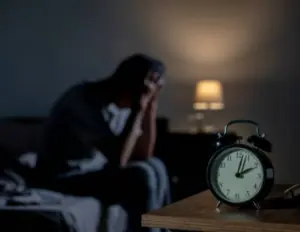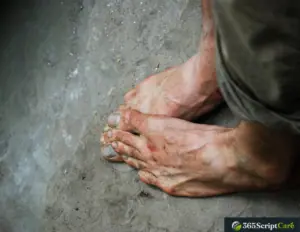
When anxiety creeps into the mind, it often shows up as a complicated thread that runs through feelings and thoughts, making you feel uneasy all the time. People from all walks of life can experience anxiety, which is a complex mental state marked by worry, fear, and nervousness. Anxiety can show up in many forms, from generalized anxiety disorder to specific phobias. Its grip can suffocate, making it hard to do daily tasks and find satisfaction. Even so, there is a glimmer of hope in the darkness of anxiety: a group effort to understand, deal with, and heal.
Taking care of stress is very important because it has many adverse effects. Its connections, productivity, and well-being affect families, communities, and society. This blog talks about empowerment and resilience by looking at ways to deal with worry, new developments in therapy, and building resilience. Through helpful talks, valuable tips, and moving stories, we look at anxiety and gain understanding, strength, hope, and lasting peace.
Understanding Anxiety
To fully understand anxiety, you have to find your way through all of its complicated forms and the significant effects it has on people’s lives. There is a wide range of conditions called anxiety disorders, and each one has its own set of signs and patterns of distress. People with Generalized Anxiety Disorder (GAD) worry too much and too often about everyday things. People with panic disorder, on the other hand, have sudden, intense moments of fear or panic. When someone has a phobia, they fear certain things or situations for no good reason. On the other hand, someone with social anxiety disorder is terrified of people or being looked at.
What are 5 Symptoms of Anxiety?
There are many ways that anxiety can show up, ranging from mental to physical signs. Here are five signs that you might be anxious:
- Excessive Worry – People who suffer from anxiety often worry or are afraid too much about many things in their lives, such as work, relationships, health, or what will happen in the future. Even if there is no good reason for this worry, it may stick around and be hard to control.
- Physical Symptoms – Anxiety can show up in many different ways in the body, such as a racing heartbeat, shaking, trembling, feeling dizzy, or having trouble breathing. These physical responses are often the body’s normal answer to the stress or threat that comes with anxiety.
- Restlessness or Irritability – Feelings of agitation, restlessness, or irritability are common signs of anxiety. When people are highly aroused, it can be hard for them to relax or focus, making their relationships with others more tense and irritable.
- Muscle Tension – Muscles can get tense and stiff because of anxiety, especially in the neck, shoulders, and head. This stress in the body could be causing headaches, body aches, or a general feeling of discomfort.
- Sleep Disturbances – Many anxious people have trouble falling asleep, staying asleep, or receiving restful sleep. Worries or thoughts that won’t go away may keep you from going to sleep, which can cause sleeplessness or restless nights.
Remember that anxiety attacks affect everyone differently, and symptoms might vary in severity and duration. If you or someone you know has severe or recurring anxiety symptoms that make daily life difficult, see a mental health or medical professional.
Mental and physical health are affected by anxiety. Chronic anxiety can affect sleep, weaken the immune system, and aggravate CVD and GI illnesses. Continuous arousal from anxiety can create fatigue, irritability, and focus challenges, affecting life performance. Understanding the complicated relationship between mental and physical health helps us manage anxiety holistically.
How Do I Deal with Anxiety?
Here are some effective coping strategies to deal with anxiety:
- Mindfulness and Relaxation Techniques – Guided imagery, progressive muscular relaxation, and deep breathing can reduce stress. Mindfulness methods can help you stop worrying and feel more relaxed by bringing your attention to the present moment and body sensations.
- Cognitive-Behavioral Strategies – Cognitive restructuring and exposure treatment assist concerned sufferers in changing their problematic thoughts and behaviors. Cognitive reform involves identifying and questioning anxious thoughts and replacing them with more balanced and correct ones. In controlled exposure treatment, people are slowly exposed to their fears. This helps people overcome their concerns and acquire confidence.
- Lifestyle Modifications for Stress Reduction – Making changes to your lifestyle that help you deal with stress can help you handle anxiety better. One way to do this is to exercise regularly, which has been shown to ease nervousness by releasing endorphins and calming people. For better health and stress control, get enough sleep, eat a balanced diet, and stop drinking coffee and alcohol.
- Social Support Networks and Communication Skills – Building social support networks and developing communication skills can aid anxiety sufferers. Friends, family, and support groups can provide belonging and approval. Communicating clearly helps people express their needs and concerns strongly. Having a solid group and good ties helps reduce anxiety.
People can take control of their anxiety and build resilience in the face of hardship by using these coping techniques in their daily lives. Different methods should be tried and adapted to fit each person’s preferences and needs. You can get professional help or advice for healing and growth if needed.
Treatment Innovations for Anxiety
Modern treatments for anxiety offer exciting alternatives to tried-and-true ways. New developments in neuromodulation, such as transcranial magnetic stimulation, and psychotherapy, such as virtual reality exposure therapy, open the door to more personalized and effective treatment for anxiety disorders.
Traditional Treatment Options
Some of the most common ways to treat anxiety disorders have been psychotherapy and medications such as Prozac for a long time. However, these treatments have come a long way in the last few years, and new complementary methods have also started to appear. Take a better look at these common types of treatment:
- Psychotherapy – Psychotherapy, or “talk therapy,” examines anxiety’s causes and symptoms using various methods. CBT for concern is one of the most researched and successful treatments. It addresses negative attitudes and acts that cause anxiety, teaches problem-solving, and puts people in scary situations. Some therapies help with stress or urges. Interpersonal, dialectical, and acceptance and commitment therapy (ACT) are examples.
- Medications – Anxiety is treated with SSRIs, SNRIs, benzodiazepines, and others. Anxiety disorders are treated first with SSRIs and SNRIs, which boost mood-regulating neurotransmitters. Benzodiazepines are rarely used to treat anxiety long-term due to dependency and side effects. Beta-blockers and anticonvulsants can improve symptoms and therapies.
Emerging Treatment Modalities
As mental health care changes all the time, new methods show promise for helping people with anxiety and improving their overall health. In the fight against anxiousness, here are some new treatment methods that show promise:
- Virtual Reality Therapy – Virtual reality therapy, which mimics real life, is becoming more popular for anxiety. VR exposure therapy gradually introduces stressful stimuli in a controlled and customizable virtual world to help people cope. Immersion reduces anxiety triggers, avoidance, and coping skill doubts.
- Exercise and Movement-based Therapies – Exercise improves mood and reduces stress, making exercise-based therapies great anxiety treatments. Yoga, tai chi, and qigong use gentle movements, focused breathing, and mindfulness to relax, gain body awareness, and control emotions. Exercise increases fitness and releases endorphins, which reduce anxiety and improve well-being.
- Herbal and Alternative Remedies – Herbal supplements and alternative therapies are being studied for anxiety. Traditional anxiety remedies include passionflower, chamomile, and valerian root. Magnesium and omega-3s may also calm mood. Herbal and alternative anxiety treatments are still being explored, although they may help as part of a medically supervised therapy plan.
Considerations for Novel Treatment Approaches
As we learn more about anxiety, new therapies are being tested. Pharmacotherapy research is finding pharmacological targets to treat anxiety disorders’ neurochemical abnormalities. Pharmacological therapies for patients resistant to current treatments or with severe side effects are becoming more tailored and thriving because of novel receptor agonists and delivery methods.
Along with medication, new psychotherapies combine technology and novel ways to make interventions more accessible and tailored. Immersive VR exposure treatment provides regulated and adjustable desensitization and skill-building for phobias. Mobile apps and digital treatments provide self-directed therapy and progress tracking outside clinical settings with scalable, evidence-based approaches. We can investigate and improve these revolutionary therapeutic methods to make anxiety treatment more effective, accessible, and tailored, providing anxious patients hope and healing.
Cultivating Resilience
Self-discovery and empowerment help build resilience to overcome life’s challenges. Prioritize well-being self-care for emotional resiliency. Mindfulness, relaxation, and exercise can reduce stress, regulate emotions, and discover inner peace. Honoring physical, emotional, and spiritual needs helps people weather life’s storms.
It takes coping skills and stress adaptation to build resilience. Social support, problem-solving, and negative mentality reframing help manage challenges. Change and flexibility help people overcome obstacles and recover from failures. Resilience-focused therapies and psychoeducation help people recognize their strengths and shortcomings and overcome challenges.
Professional treatment can boost resilience and mental health. Mindfulness, CBT, and trauma-informed techniques can help people manage stress, regulate emotions, and cope better. Mental health professionals can assist people in understanding their ideas, actions, and feelings, strengthening resilience, and overcoming obstacles.
Positive psychology and a growth mindset promote resilience and well-being. Positive people regard problems as learning opportunities, fostering resilience and adaptation. Self-compassion, gratitude, and connections can boost resilience, purpose, belonging, and optimism despite life’s adversities. Self-care, coping skills, professional assistance, and positive psychology can help people endure life’s challenges with courage, grace, and perseverance.
Lifestyle Factors and Anxiety
The way people live their lives has a significant impact on their anxiety levels, as well as their general health and ability to deal with stress. Knowing how living choices affect anxiety can help people form habits that are good for their mental health and lessen the effects of anxiety. Here is a look at some essential living factors and how they relate to anxiety:
Diet and Nutrition
There is growing research showing that diet and nutrition affect mental health, especially anxiety. A balanced diet of complete foods, fruits, vegetables, lean meats, and healthy fats supports brain and mood management. Conversely, processed meals, sweets, and bad fats may increase inflammation and oxidative stress, worsening anxiety. Consuming caffeine and alcohol in moderation is also important because they might aggravate anxiety in vulnerable people.
Exercise and Physical Activity
Regular exercise reduces anxiety and improves mental health immediately and in the long term. Physical activity releases “feel-good” neurotransmitters called endorphins, which improve mood and reduce stress. Aerobic workouts, including walking, jogging, swimming, and cycling, help reduce anxiety by relaxing, boosting sleep, and strengthening stress resilience. The socialization and sense of accomplishment from group fitness or sports can also improve mental health.
Sleep Hygiene
Sleep is necessary for cognitive function, emotional control, and stress management, making sleep hygiene essential to anxiety management. Consistent sleep-wake cycles, a soothing bedtime routine, and a comfortable sleep environment (minimizing noise and light) promote restorative sleep and reduce anxiety. Insomnia and irregular sleep schedules can worsen anxiety symptoms and decrease daytime functioning, emphasizing the importance of sleep as a self-care pillar.
Substance Use
Stress and anxiety can be managed poorly by drinking, smoking, and using medications. These substances may momentarily reduce anxiety but may worsen it, producing dependence, withdrawal, and mental health issues. Prescription and illegal drug misuse can worsen anxiety, threatening physical and mental health. Controlling anxiety and recovering from drug use requires effective therapy and healthy coping.
Clean food, regular exercise, good sleep, and thoughtful drug use can boost anxiety, resilience, and well-being. Accepting these lifestyle factors helps people cope with life’s challenges and improves mental health.
Resources and Support for Anxiety
Many methods and support groups can help people overcome anxiety. NAMI and local mental health groups offer information, support, and events for anxiety sufferers. Giving people a sense of belonging through support groups and online platforms helps with anxiety. Crisis intervention organizations and hotlines can save the lives of critically unhappy people.
Mental health apps and other digital resources might help you manage anxiety on the road. Helpful apps include Headspace, Calm, Woebot, and Talkspace for mindfulness meditation and cognitive-behavioral therapy. Everyone is customized to their needs and tastes. Technology can help people cope with anxiety and find solace amid chaos, leading to self-discovery and healing with a wealth of new tools.
Set Out on Your Journey to Find Peace
In the tapestry of anxiety management, we’ve created a mosaic of ways to deal with stress, new ways to treat anxiety, and ways to build resilience. Many tools can help people find peace, from cognitive-behavioral therapy and medication to mindfulness routines and relaxation methods. Self-care routines, building helpful relationships, and getting professional help are crucial to resilience. They give people the strength to handle the ups and downs of anxiety with grace and strength.
Let’s heal and grow together as we say goodbye. Remember that asking for help is brave and a way to find peace. There are a lot of different therapies, support groups, and holistic methods to choose from. Dear readers, you can eliminate anxiety and live a peaceful life. Visit 365 Script Care for easy and reliable ways to get medications.





